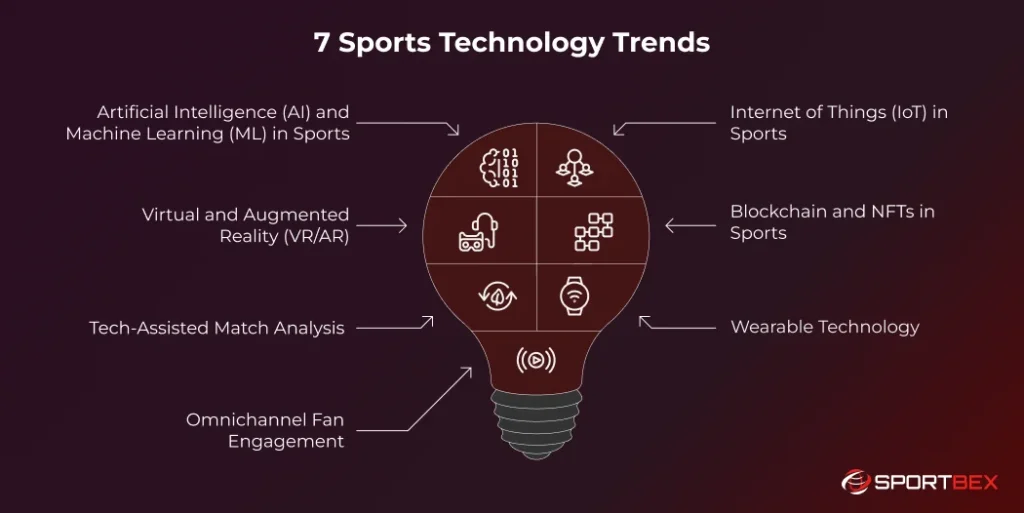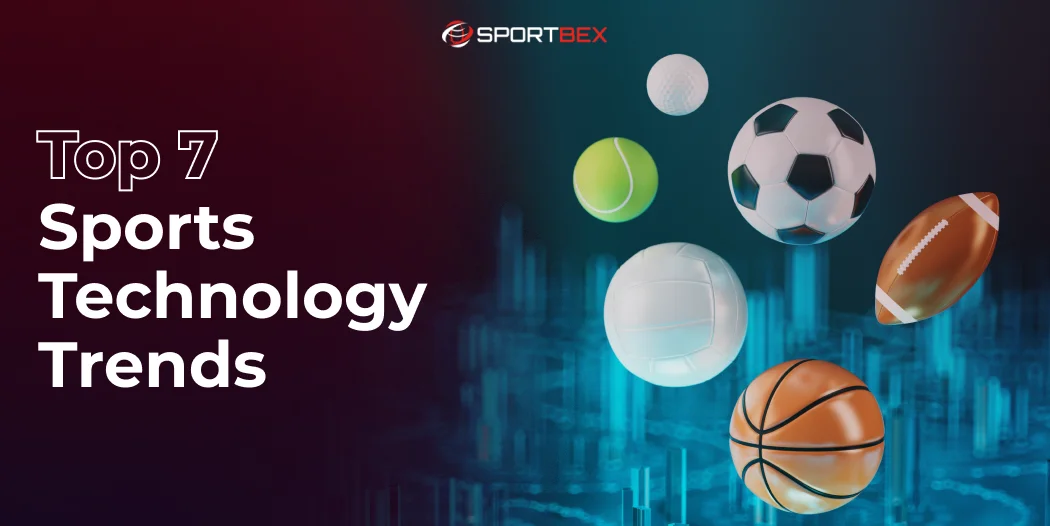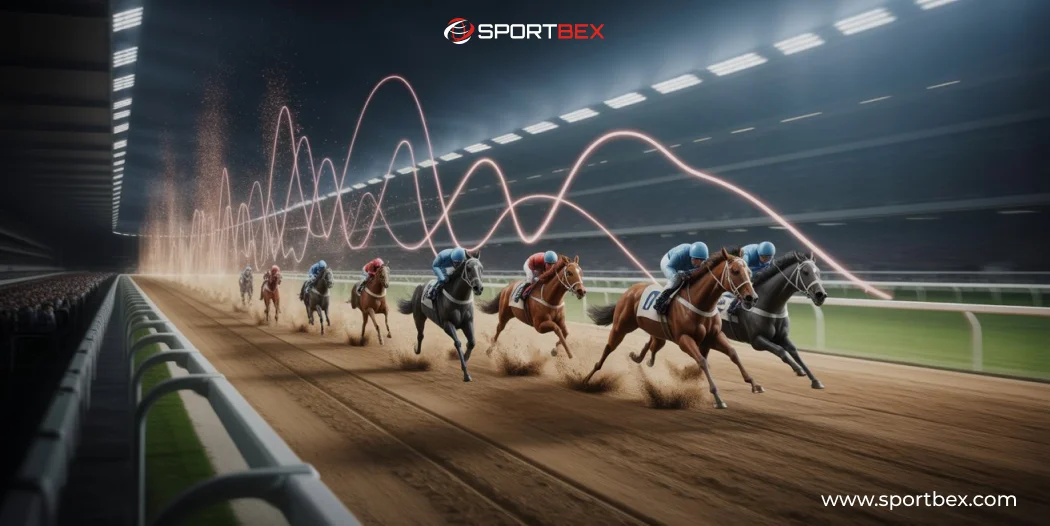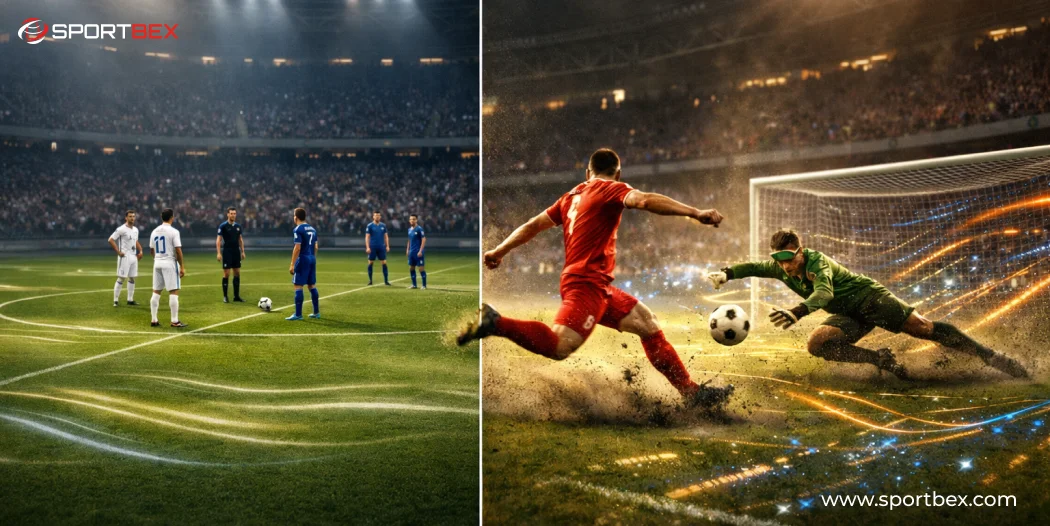The sports industry is experiencing a revolution, driven by rapid technological advancements. From the way athletes train to how fans engage with their favorite teams, technology is reshaping every aspect of the game. Staying ahead of these changes is no longer just an advantage; it’s essential for survival and growth. This wave of innovation, often referred to as sports technology, is creating unprecedented opportunities for athletes, teams, and businesses.
For organizations within the sports world, understanding these shifts is critical. The integration of data analytics, artificial intelligence, immersive experiences, and live sports data api is setting new standards for performance and fan interaction.
We explore the top seven sports technology trends set to dominate, providing a clear roadmap for what’s to come. By reading on, you will gain insights into how these innovations can enhance athletic performance, deepen fan connections, and streamline operations for a competitive edge.
Why Technology Is Crucial for the Sports Industry
The role of technology in sports has evolved from a peripheral enhancement to a core component of the industry’s infrastructure. Its impact is far-reaching, fundamentally altering how sports are played, managed, and consumed. For athletes and teams, technology provides the tools needed to push the boundaries of human performance. For fans, it delivers more engaging and personalized experiences, bringing them closer to the action than ever before.
Beyond the on-field action, technology is the backbone of modern sports business operations. It enables leagues and organizations to manage complex logistics, optimize revenue streams, and build global brands.
The ability to collect and analyze vast amounts of data helps teams make smarter decisions, from drafting players to crafting marketing campaigns. As the digital landscape continues to expand, leveraging the latest sports tech is the key to unlocking new levels of efficiency and creating sustainable growth in a highly competitive market.
Benefits of Adopting These Trends

Integrating new technology in sports offers a wide range of benefits that can transform an organization. These advantages go beyond simple modernization, providing tangible improvements in performance, engagement, and operational efficiency.
Boost Athlete Performance and Track Health
One of the most significant impacts of sports technology is its ability to optimize athlete performance and well-being. Advanced tools allow coaches and medical staff to monitor physical output, track biometric data, and identify injury risks before they become serious.
This data-driven approach enables personalized training regimens that maximize potential while minimizing strain. By focusing on athlete health, teams can ensure their most valuable assets remain in peak condition, leading to better results on the field and longer, more successful careers.
Connect with Fans in Smarter Ways
Fan engagement is the lifeblood of the sports industry, and technology is creating new, dynamic ways to connect with audiences. Immersive experiences like virtual reality (VR) and augmented reality (AR) can transport fans directly into the stadium from their living rooms.
Personalized content, interactive mobile apps, and a sophisticated streaming service for live sports keep them engaged before, during, and after the game. These innovations foster a deeper sense of community and loyalty, turning casual viewers into passionate supporters.
Saving Costs and Streamlining Team Operations
Behind every successful team is a well-run organization. Sports technology helps streamline the complex logistics of managing a sports franchise. Automated systems can handle everything from ticketing and merchandise sales to facility management and travel coordination.
Utilizing a high-quality sports API solution can also centralize data streams, making information more accessible and actionable. This increased efficiency reduces operational costs and frees up resources that can be reinvested into other areas, such as player development or fan experience enhancements.
7 Sports Technology Trends

As we look toward the near future, several key trends are poised to make a major impact. Here are seven of the most important developments in sports technology to watch.
Artificial Intelligence (AI) and Machine Learning (ML) in Sports
AI and machine learning are at the forefront of the new technology in sports. These systems can analyze massive datasets to uncover patterns that are invisible to the human eye. In-game, AI can provide real-time strategic recommendations to coaches.
For player development, it can identify specific areas for improvement based on performance metrics. Off the field, AI optimizes everything from ticket pricing to marketing campaigns, making it a versatile tool for any sports organization. The use of AI in sports API is becoming particularly crucial for developers and teams looking to integrate intelligent features into their platforms.
Internet of Things (IoT) in Sports
The Internet of Things (IoT) connects physical objects, like balls, equipment, and even the stadium itself, to the internet, allowing them to send and receive data. Smart stadiums use IoT sensors to manage crowd flow, reduce wait times, and enhance security.
Smart equipment can track player movements and equipment performance with incredible accuracy. This network of connected devices generates a constant stream of information, offering unparalleled insights into every facet of the game and stadium operations.
Virtual and Augmented Reality (VR/AR)
VR and AR are transforming the fan experience by creating immersive and interactive environments. VR can offer fans a virtual seat at the game, complete with 360-degree views and interactive features. AR, on the other hand, overlays digital information onto the real world.
A fan in the stadium could point their phone at a player and see their live stats appear on the screen. For athletes, VR simulations provide a safe and effective way to practice different game scenarios.
Blockchain and NFTs in Sports
Blockchain technology is introducing new levels of security and transparency to the sports world. It’s being used to create secure ticketing systems that prevent fraud and scalping. Non-fungible tokens (NFTs) have also opened up a new market for digital collectibles, allowing fans to own unique moments in sports history.
This technology is creating new revenue streams for teams and leagues while giving fans a novel way to invest in and engage with their favorite sports. As this area grows, understanding how Technology Is Changing Betting Data through secure, decentralized ledgers will be critical.
Tech-Assisted Match Analysis
The days of relying solely on a coach’s intuition are over. Modern match analysis uses sophisticated software to break down game footage and player performance. Video analysis tools can automatically tag key events, track player positioning, and generate detailed reports.
This allows coaches to quickly identify strengths, weaknesses, and tactical opportunities. By combining human expertise with technological precision, teams can develop more effective game plans and gain a significant competitive advantage.
Wearable Technology
Wearable devices are one of the most visible forms of sports technology. Athletes use GPS trackers, heart rate monitors, and biometric sensors to collect data on their physical performance during training and competition. These wearables provide real-time feedback that helps optimize effort, prevent overexertion, and monitor recovery.
The insights gathered from this technology are invaluable for creating personalized training programs that push athletes to their limits safely. It’s a key component of AI in sports technology, as the data collected fuels machine learning models for performance prediction.
Omnichannel Fan Engagement
Modern fans expect to interact with their favorite teams across multiple platforms seamlessly. An omnichannel strategy integrates the fan experience across mobile apps, social media, websites, and in-stadium displays. A fan might buy a ticket on their phone, receive a personalized welcome message upon entering the stadium, and use an app to order food to their seat.
This holistic approach ensures a consistent and engaging experience at every touchpoint, strengthening the bond between the fan and the team. Access to real-time sports data is the engine that powers these dynamic, cross-platform experiences.
How Can Sportbex Help With Current Sports Technology Trends?
Navigating the landscape of sports industry trends can be challenging, but Sportbex provides the tools and data necessary to stay competitive. Our comprehensive data solutions are designed to help businesses, developers, and even Sports Tech Startups harness the power of these emerging technologies.
We provide reliable, fast, and detailed sports data that can fuel everything from AI-driven analytics platforms to engaging fan experiences. Whether you are building the next great sports app, developing advanced predictive models, or creating immersive content, Sportbex offers the foundational data you need to succeed. Our goal is to empower our partners to innovate and thrive in the ever-evolving world of sports.
Get a Ready-Made Platform On Rent.
Get Started TodayConclusion
The future of sports is undeniably digital, and the trends outlined above are just the beginning. Embracing these technological advancements is no longer optional; it is the key to building resilient, competitive, and successful sports organizations. From enhancing athlete performance with wearables and AI to revolutionizing fan engagement with VR and omnichannel strategies, the opportunities are immense.
For teams, leagues, and businesses in the sports ecosystem, the time to act is now. Start by identifying which of these trends align best with your strategic goals. Explore how you can integrate a sports API solution to streamline your operations, create new revenue streams, and build deeper connections with your audience. The journey into the new era of sports has begun, and those who lead the charge will define its future.
Frequently Asked Questions
Sports technology refers to tools, software, and devices that enhance athletic performance, improve fan engagement, and streamline operations in sports organizations.
Sports technology helps athletes monitor performance, track metrics, and optimize workouts using wearables, AI analytics, and motion sensors.
The latest trends include wearable devices, AI-driven analytics, virtual reality (VR) training, smart stadiums, and real-time live score data.
It enhances fan experiences through live stats, interactive apps, VR/AR content, personalized notifications, and social media integrations.
Investing in sports technology improves performance, increases operational efficiency, creates new revenue streams, and strengthens fan loyalty.
Recent Blog
How Accurate Are Live Odds on Horse Racing Online Bookmakers?
March 2, 2026
Live Football Odds vs. Pre-Match Odds: Key Differences You Must Know
March 2, 2026




